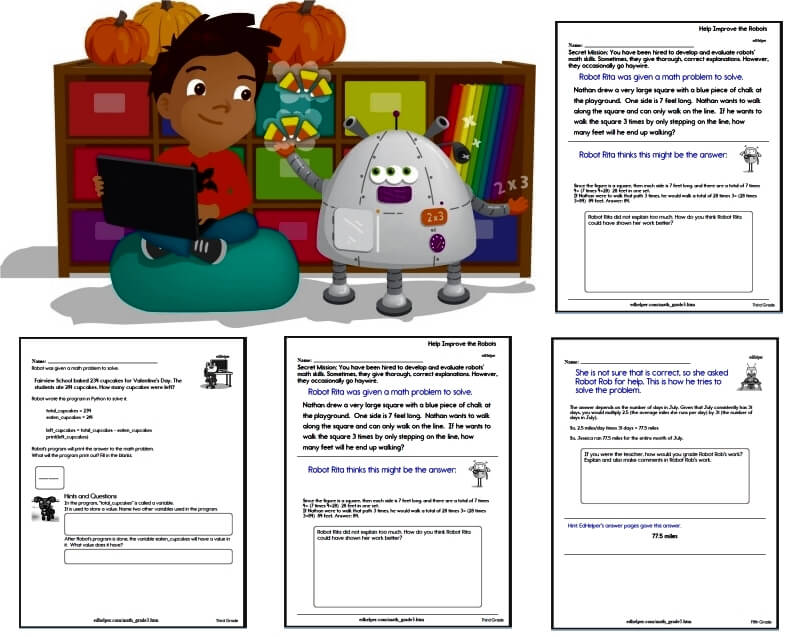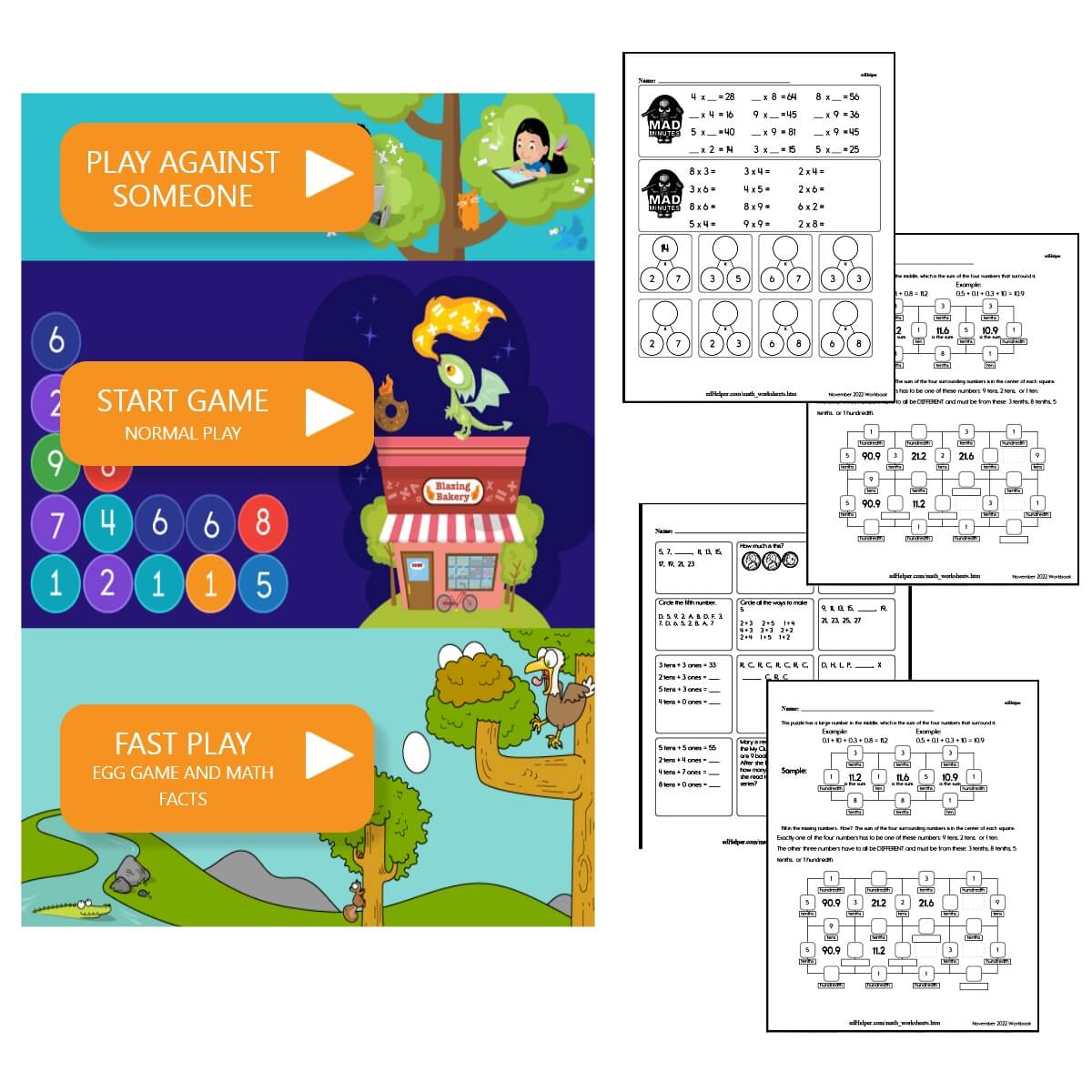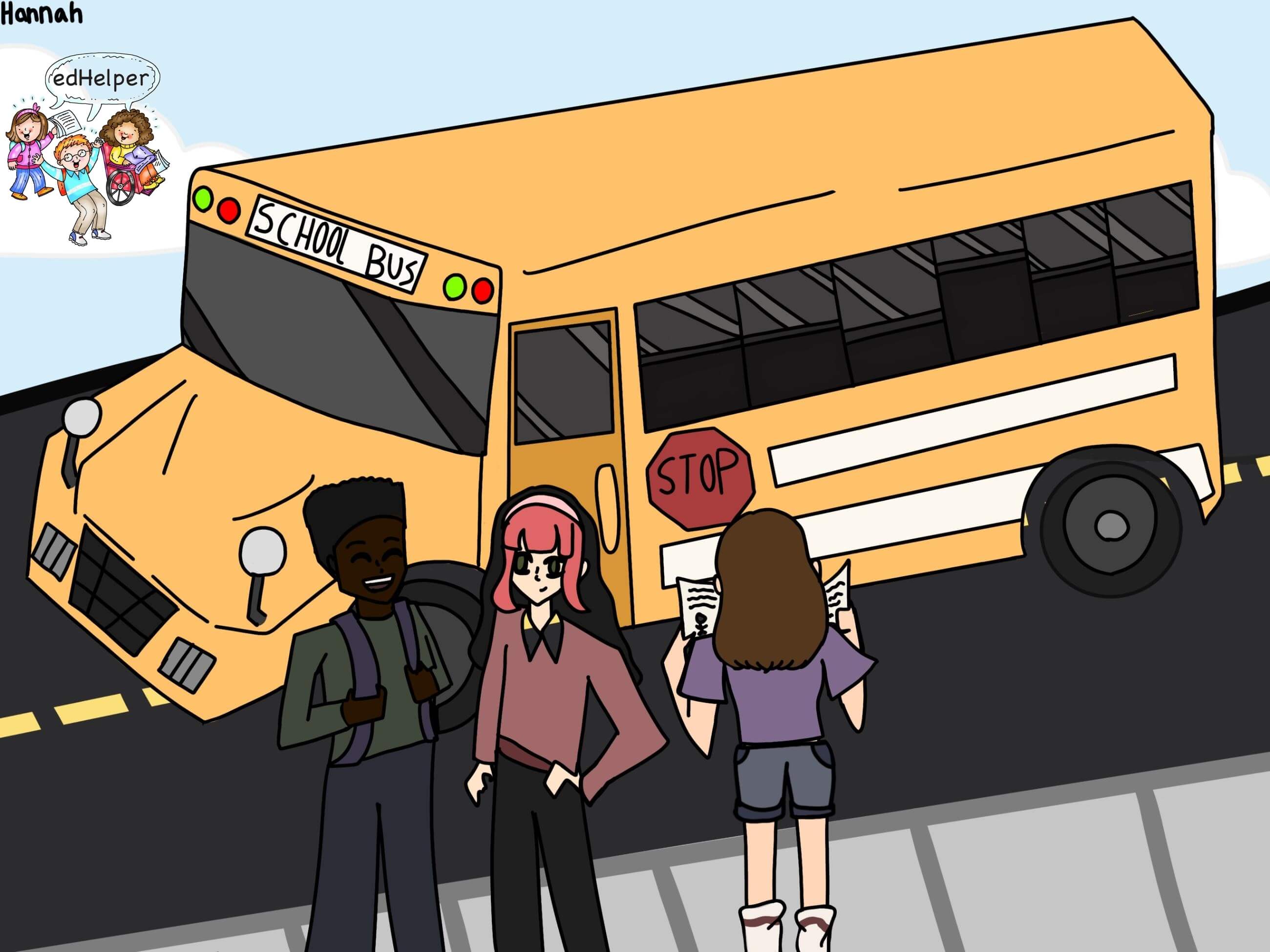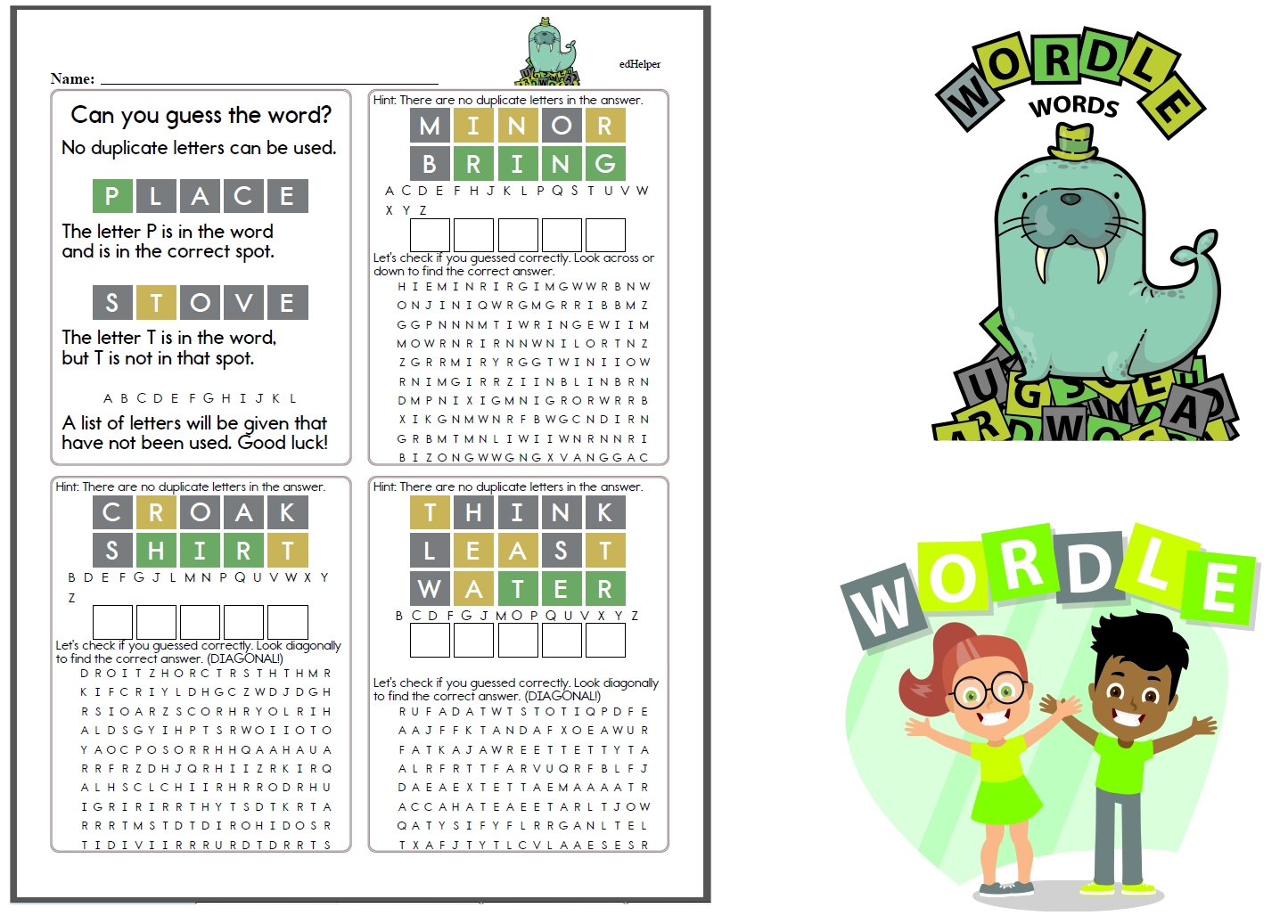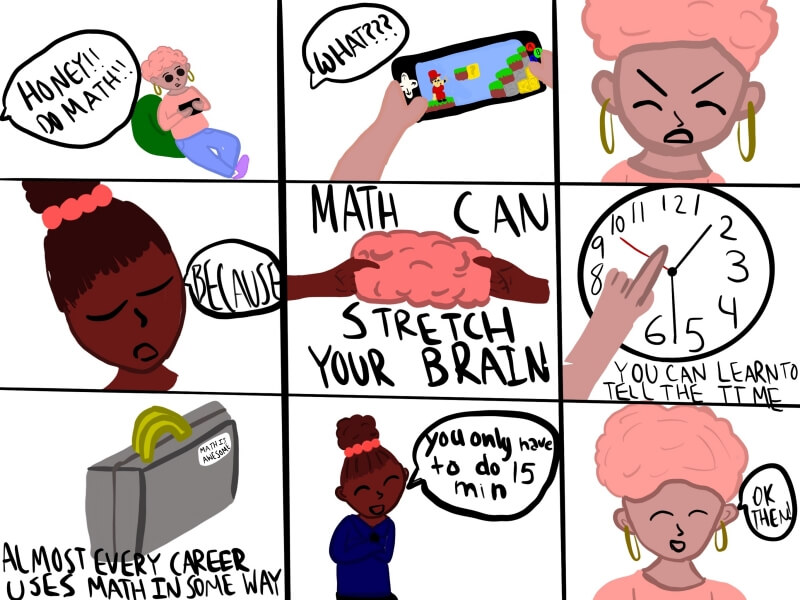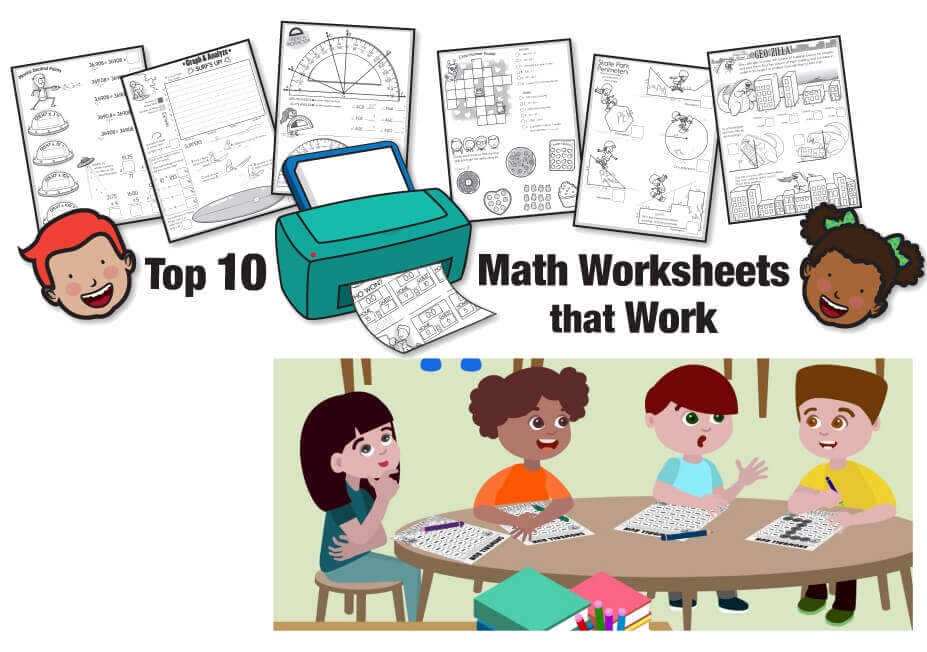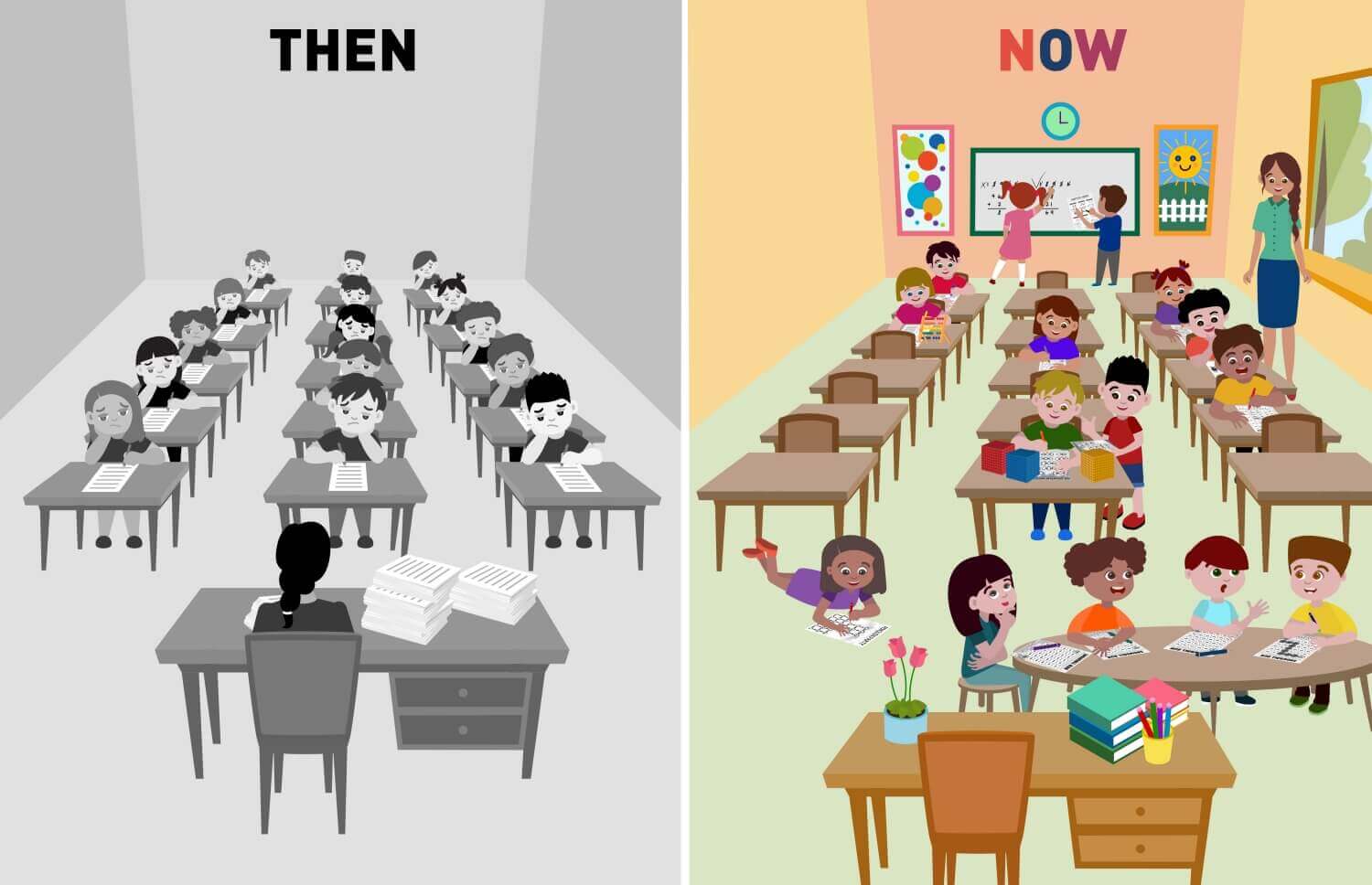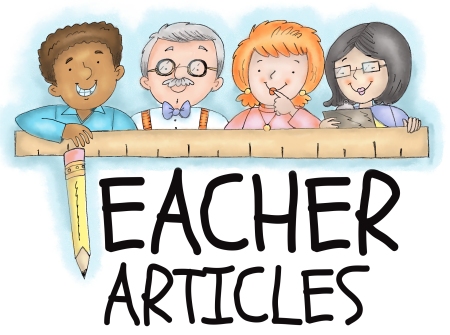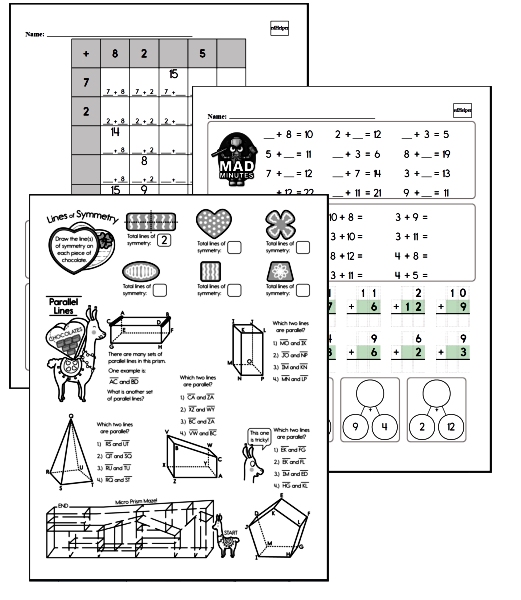Celebrate Poetry Month With Your Students this April With these Fun Ideas and Activities
By: edHelper Staff
Updated: Apr 3, 2024
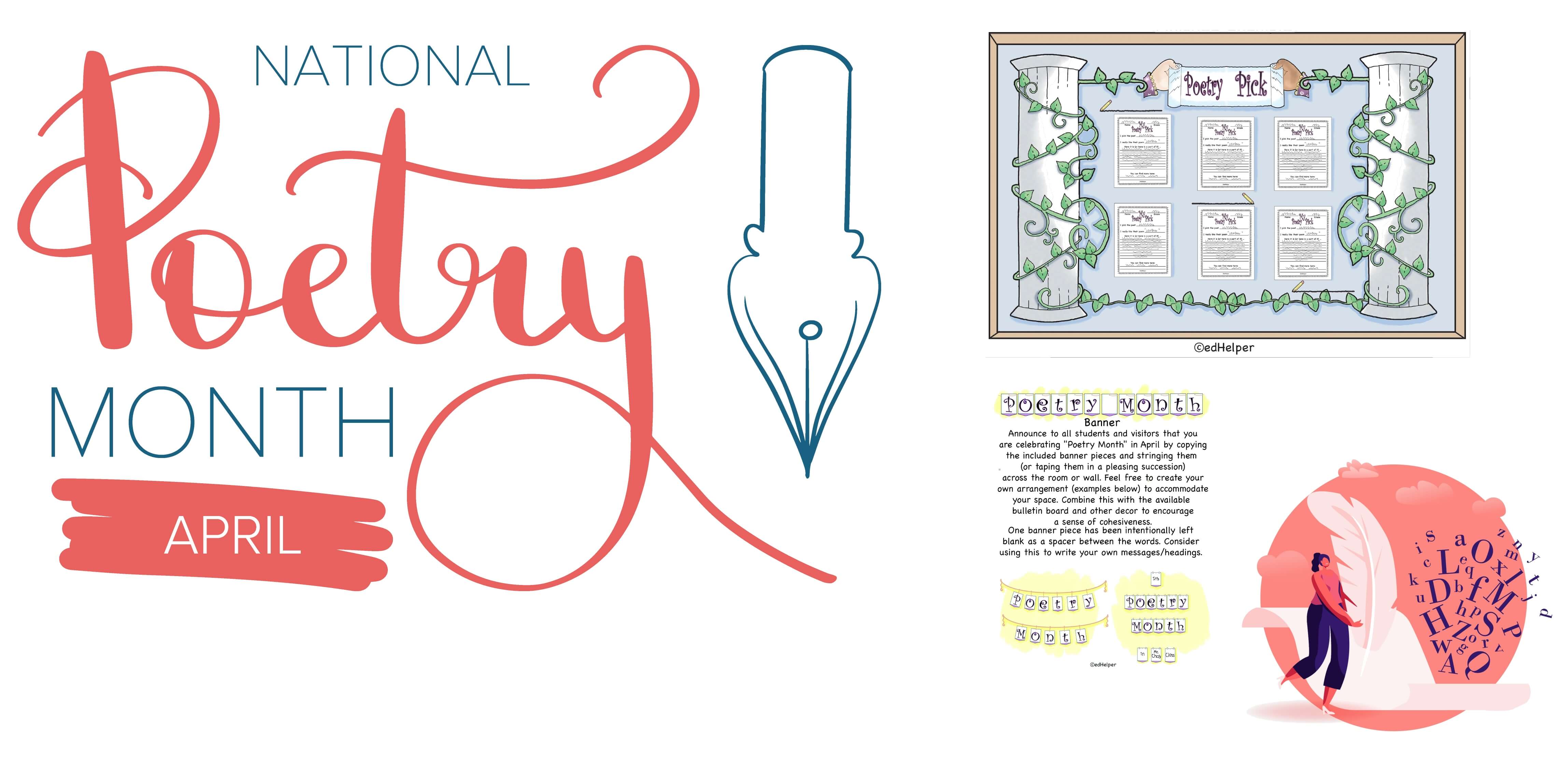
Studying poetry gets kind of a bad rap for being stuffy, boring, and frustrating, but it doesn't have to be! Teaching poetry can help improve literacy, it can help teach different perspectives, and it can give students a healthy way to express their feelings. With the right authors, poems, and activities, it can even be fun.
And what better time to do it than poetry month!
Celebrate all things poetry in your classroom this April with these ideas and activities that will shower your students with unique, interesting, and fun ways to read, study, and write poetry.
Decorate for Poetry Month
Start decorating for Poetry Month by using these free printables:
Poetry Month Bulletin Board
Poetry Month Awards
Poetry Month Banner
Poetry Month Decorations
Poetry Month Facts Poster
Poetry Month Puzzles
First things first-you should decorate for poetry month!
Don't worry. We've got you covered with some easy, printable decorations you can hang up in your classroom in no time.
Start by welcoming students to your classroom with a door sign. It could also be hung on a bulletin board as part of a larger display.
Check out our poetry month banner, which can be hung on a string or taped directly to a wall or bulletin board. If you want to get kids in on the action, consider creating a Poetry Pick bulletin board. It includes a My Poetry Pick sheet, where students can share the names of their favorite poems and poets.
Push-pin poetry can be a lot of fun, too! It's a bit like magnetic poetry, but instead of arranging magnets on a refrigerator, you write many different words on strips of paper that students can arrange on a bulletin board to create their own poems.
Don't forget to make actual poems part of your display! Arrange poetry books on the tops of bookshelves for students to grab easily, or create a special shelf in your classroom library that contains nothing but poetry.
Poem Sorting
Poem sorting is a great way to talk about genres, and it's a great activity that can be adapted depending on the age of your students. For example, very young students could sort short poems according to whether they include people or animals, while older students could learn how to sort satire from ballads and sonnets.
It's a good idea to start by doing this activity with the whole class. Read a few different poems and have everyone decide where they should be sorted. That way, if you decide to have individual students or pairs tackle the activity, they will know exactly what to do.
Consider using short poems that can be printed on a single sheet of paper that young students can physically sort into piles. You can ask older students to sort the poems in an anthology as part of a larger project.
Read Old and New Authors
When most of us think of poetry, the greats come to mind, like Walt Whitman, Edgar Alan Poe, and Robert Frost. There's value in reading some of these authors, especially if you have older students, but don't forget to add newer poets to your lesson plans!
Try adding works by Jason Reynolds and Amanda Gorman to your list of poems to share with your class. If you have younger students, Shel Silverstein still counts as poetry! You can also find other anthologies and books that you may not have thought of as poetry before, like Fox in Socks by Dr. Seuss.
One of the best things about reading poetry with your class is the discussion that happens afterward because it often evolves organically. It gives you the opportunity to talk about how a poem made your students feel or what it reminded them of without having to plan comprehension questions ahead of time.
Make Poetry a Sensory Experience
The more senses you involve in learning, the more likely your students are to remember what they were learning about. When it comes to poetry, that means inviting your students to read poems, listen to poems, and draw pictures to go with those poems.
Outgoing students would appreciate being able to act out a play for the class, while artistic students might like to use clay to create a sculpture that goes with a poem they read or wrote. You could also look for ways to incorporate smells and tastes into your lesson plan by inviting students to write a poem about a bouquet of flowers you bring into the classroom or their favorite dessert.
Incorporate Puzzles and Worksheets
Puzzles and worksheets are an easy way to incorporate more poetry activities into your classroom during the month of April. They can be added to an early finisher bin, completed in pairs during class, and can even be sent home as homework.
A few of our favorite puzzles and worksheets include:
- Poetry Crossword
- Shape Code Secret Message Worksheet
- Poetry Prompt Maze
Have a Poetry Contest
No poetry month is complete without asking students to do a little writing of their own! If you want to add another layer of fun to the writing your students do in your class, consider having a poetry contest.
For example, you might give out first-, second-, and third-place prizes to students who incorporate the most senses into their poems. If you don't want it to be a competition for first, second, and third place, consider handing out special recognition and participation awards for sharing their poem with their classmates. After all, having others read your poetry can be scary!
It's a good idea to let the teacher or another adult in the building choose the winner. If you want students to vote, make sure it's an anonymous process, and make sure you use specific criteria. For example, let them vote on the funniest poem instead of the "best" poem.
Check out these printable awards that you can hand out to your class!
Host a Poetry Slam
A poetry slam can be a great way for students to share poetry with each other! They can read their own poems, or they can read a published poem aloud to the class.
Get your students into the spirit of a true poetry slam by watching some poetry performances online. Talk about how poets use the inflection, tone, and volume of their voice to turn a simple reading of their poem into a performance.
Most poetry slams include a contest and a winner, but they don't have to. You and your students can have just as much fun reading poetry aloud to each other without turning it into a competition.
Have students who are a little shy? Consider letting students poetry slam in pairs, or you could make reading a poem in front of the class optional so those who don't want to can stay in the audience.
Want an easy way to get started with Poetry Month? Download our super pack of Poetry Month activities and resources!
Don't let Poetry Month pass you by without having a lot more fun in your classroom! Not only will your students learn a lot, but they'll also have a blast when you choose some of the ideas and activities in this article!


